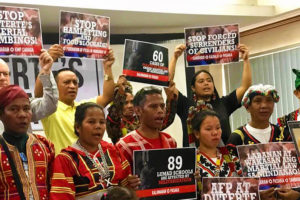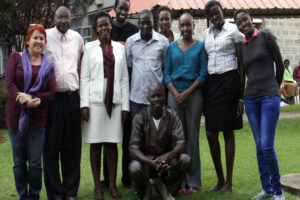[[{“type”:”media”,”view_mode”:”media_large”,”fid”:”405″,”attributes”:{“alt”:””,”class”:”media-image”,”height”:”212″,”typeof”:”foaf:Image”,”width”:”480″}}]]
Full Text:
(Caracas, November 8, 2014) – Around 90 representatives of civil society and social movements from around the world gathered in Margarita Island in Venezuela to firm up key messages for a dialogue with climate ministers that would feed in to global climate policy and action. These are based on the Margarita Declaration, the outcome document produced from the July pre-meeting organized to provide space for social movements and civil society to outline their analysis and demands for meaningful climate action that responds to the urgency of science and to the imperatives of equity.
The Social PreCOP on Climate Change, an initiative of the Bolivarian Government of Venezuela, was held from November 4-7, 2014, also brought together ministers from 47 countries to dialogue with 20 civil society representatives for possible policy convergences in preparation for the UN climate summit in Lima, Peru. The ministers then met for a closed PreCOP session, to discuss and agree on bringing the civil society document to the 20th Conference of Parties in Lima.
Two days of intense debates over process and substance resulted in the document coming out as a Chair’s Summary of the Venezuelan presidency of the PreCOP, with civil society endorsing this in principle as a ‘living document’ to articulate proposals for possible solutions to change the system and not the climate.
Among the political priorities that received consensus in the document were around:
Social participation, including the institutionalization of a social PreCOP as an autonomous and independent space to ensure effective civil society participation in the negotiation process. Civil society also called on governments to direct the UN Framework Convention on Climate Change to put in place measures to protect the rights of expression, including protest.
Sustainable systems and just transition, and holding transnational corporations accountable for their actions and practices. There was also a call for a ‘fair sharing’ of mitigation actions by all countries based on historical responsibility and respective capabilities in order to keep global temperature rise to below 1.5 degrees.
That the principles of Free, Prior and Informed Consent be implemented to assure the participation of all peoples in climate negotiations and climate policy.
The necessity to foster the inclusion of the climate change issue and its structural causes in formal and informal educational systems, including the gender perspective and human rights.
The fulfillment of climate finance obligations must be through adequate additional public funds. Financing mechanisms and instruments must not be debt-creating, and speculative, and must not abide by the logics of market supply and demand. Funding must be additional, reliable, predictable, sufficient, adequate and unconditioned; and it must be subject to measurement, reporting and checking mechanisms.
The climate negotiations should not result in structures, institutions and methods that promote false solutions and the financialization of nature, such as carbon markets, geo-engineering, REDD, “climate-smart agriculture,” nor high-risk options that could have dangerous impacts on the environment and health for future generations.
The UNFCCC and its institutions should be a catalyst for the global transformation towards just, affordable, safe, efficient and renewable energy system for all, within the context of a just transition and the repayment of historical climate debt.
The Principles of the Convention should be incorporated explicitly in the new agreement to be signed in 2015 and that agreement must be guided by international human rights standards.
Special circumstances of the Least Developed Countries must be prioritized in the 2015 agreement especially in relation to adaptation, loss and damage, and the means of implementation.
These messages had been agreed upon, but not without a good amount of debate among civil society, particularly around keeping 80% of fossil resources underground. Recognizing that Venezuela uses its oil resources to finance its economic and social development and transition, the consensus reached was to demand Northern countries to reduce their energy demand.
While the Ministers received these messages from civil society, what they will do about these remain to be seen. Reflecting on the Ministerial session, a governmental representative said ‘he felt like they could have done more (at this meeting)’.
It was certainly one step forward from where and how the civil society engagement has been since when civil society staged a mass walkout during the 19th climate summit in Warsaw, Poland almost a year ago amid growing frustration on the lack of participation in the official climate negotiations, and over the fact that a number of justice issues were not being addressed. ###



